DC Controller vs Tap Timers
DC controllers and Tap Timers are essentially the same. Both are operating solenoid valves that control the flow of water. Tap Timers have the solenoid valves pre-built in, whereas the DC Controllers are individually sold and separate to the DC Solenoid Valves.
Things to Consider:
- Lifespan
- Budget
- Features
Tap Timers
Tap Timers are your standard beginner irrigation controller. Also sold at common retailers like Bunnings and Mitre10. Tap Timers are commonly powered by 2 x AA Batteries that will give you a rough lifespan of 1 year before they need changing. They require good Alkaline Batteries, as anything less will give you a couple of weeks life and then run out.
Features and Programmes on tap timers are relatively simple. 1 to 2 start times per day that can then cycle a variety of run timers, every 6, 12, 24 hours, or 1 to 7 interval days for example. For most purposes of a tap timer, this is enough functionality in a system.
Tap timers have the solenoid valve built directly into the body. Different brands have different options in outlets, but commonly they are a single station single out timer. We do supply the orbit which comes in a 2 or 4 station.
Bluetooth and WiFi capabilities are becoming more frequent in tap timers, allowing for easier programming and functionality. We currently sell the Orbit B-Hyve which has these options.
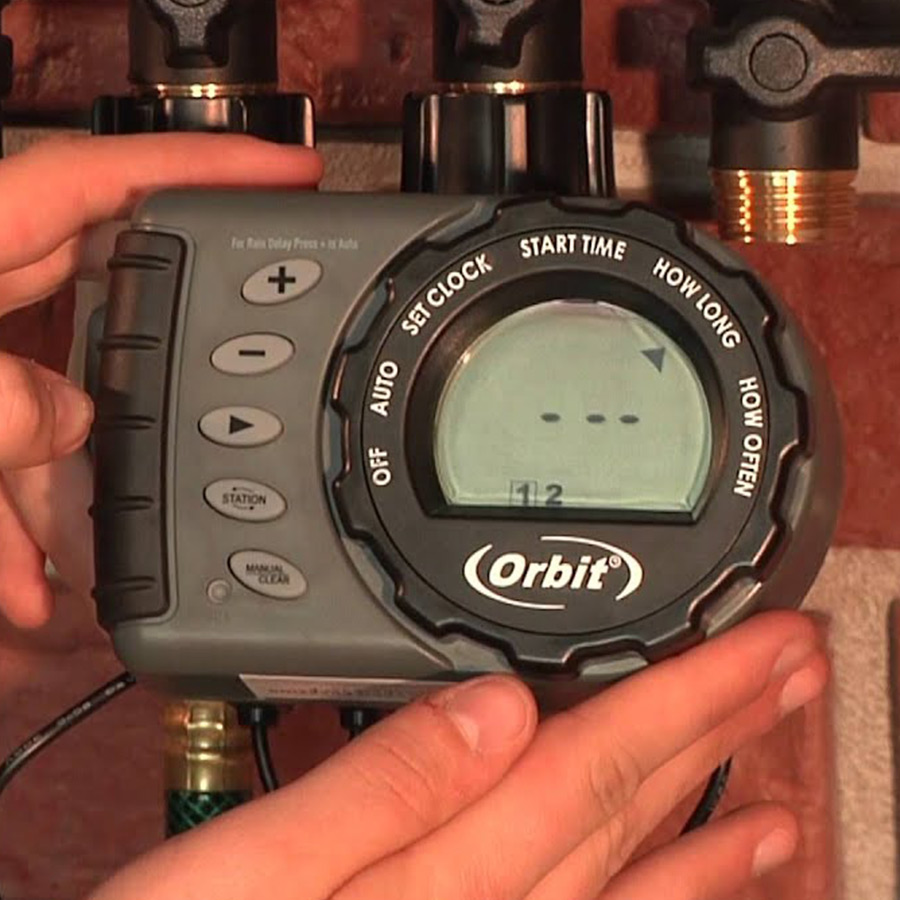
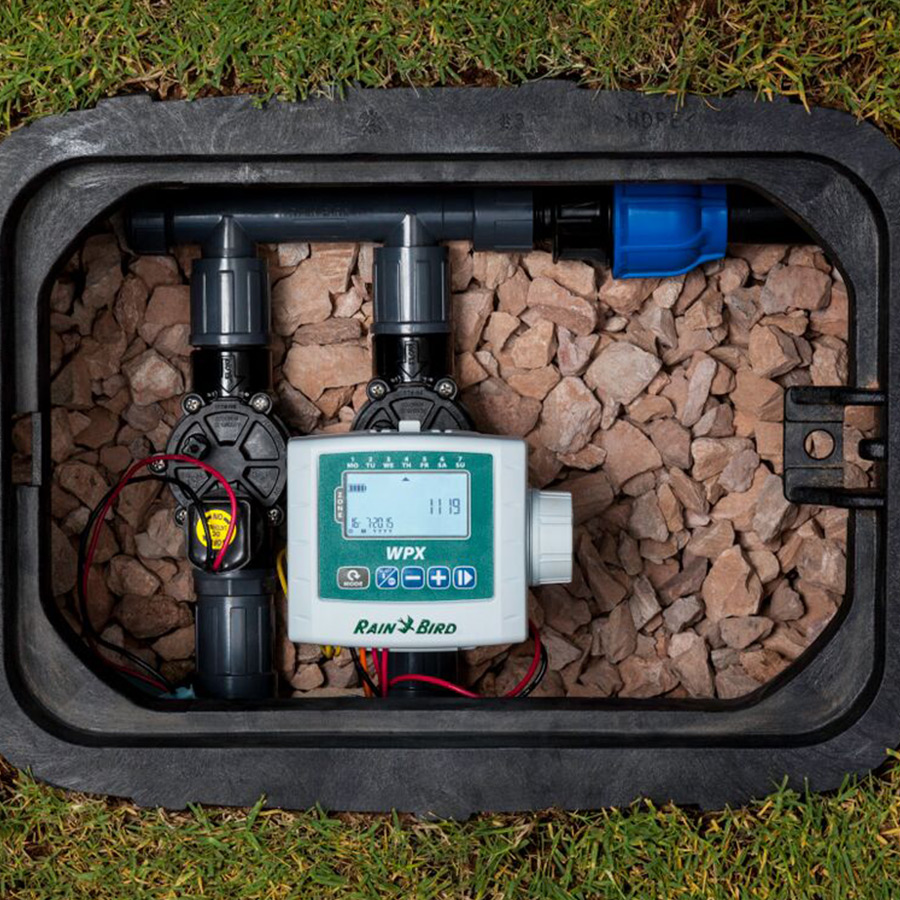
DC Controllers
DC Controllers are similar to Tap Timers as they are a controller powered by a battery. DC Controllers differ by not being an all in one unit of controller and valve together. DC Controllers are just the computer brains that operate a separate solenoid valve wired into the controller (similar to AC controllers).
DC Controllers can come in either 1, 2, 4, 6 and 12 station options. They also typically come with a sensor port that allows for a rain sensor to be wired in, this can assist in saving water by shutting off the system when detecting rain.
Bluetooth capabilities are becoming more frequent in DC Controllers, allowing for easier programming and functionality. We currently sell the Node Bluetooth which has this option.
Lifespan
DC Controllers will have a much longer lifespan than Tap Timers. The reason being the quality of construction, purpose and the separate solenoid valves.
The solenoid valve is the muscle holding the pressure from the water. DC Controller has a separate valve that's sole design is to hold that water and open and close when told. Tap Timers have this in one unit and it can compromise the construction. They are also one unit so not able to replace any parts.
Solenoid valves can be rated up to 16 Bar so you can trust the system under very high pressures. Most are serviceable for maintenance and parts available for repairs.
Tap Timers
- 1 - 3 years with good maintenance
DC Controllers
- 10 - 30 years with good maintenance
- Solenoid Valve is Serviceable
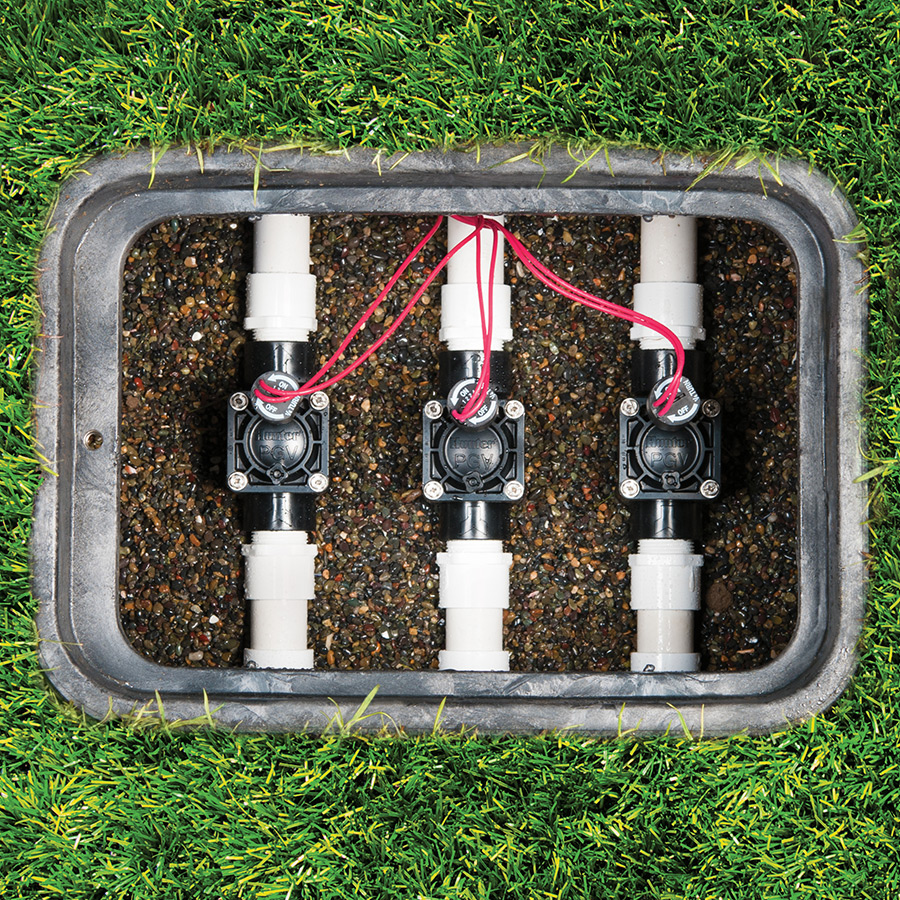
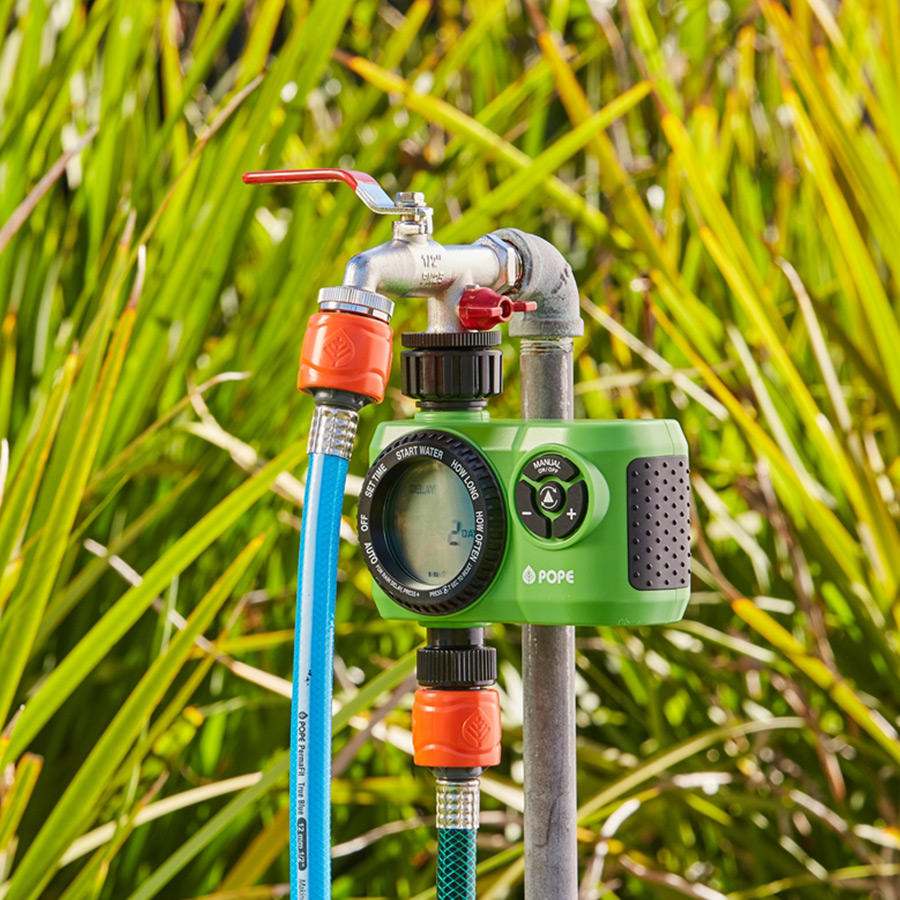
Budget
The budget of a system can play a massive part when setting up your irrigation. Due to the controller being the last item required it can be a little overlooked and the cheap option can be enticing.
Tap Timers are a bit cheaper than DC Controllers. This is due to the separate solenoid valve that is also required. In comparison, the single outlet tap timer and DC controller are relatively competitive.
- Average Tap Timer Single Station - $70 - $90 ex gst
- Average DC Controller Single Station - $120 - $150 ex gst
The price gap starts to widen when you add more zones as the DC Controller requires one solenoid valve per zone. the average price for a DC solenoid Valve is $70 ex GST per valve and this may add up on the larger systems.
- Orbit Tap Timer 4 Station - $186.97 ex gst
- WPX DC Controller 4 Station - $500.00 ex gst
- 1 x Controller = $220.00
- 4 x Solenoid Valves = $280.00
Features
Sensors
The big difference between the two controllers, DC Controllers typically has 1 sensor port allowing for a rain sensor. Tap Timers do not have any ports for any sensors. The rain sensor is commonly the only sensor that works for the DC Controller and allows for an instant shut off when rain is detected, saving water, money and timer. DC Controllers also have a Master Valve Port.
Run Times
Tap Timers will change depending on the manufacturer but they commonly have 1 - 2 start times with only 1 run time. This allows for a water cycle morning and night and set at different intervals. e.g. 6 or 12 hours or 1 - 7 day intervals. DC Controllers have a lot more functionality with up to 3 - 4 different programmes, more start timers per zones and longer run times.
Rain Delay
- Most tap timers will have a rain delay function that can vary from 1 - 3 days
- DC Controllers have a watering delay function that can range from 1 - 9 days
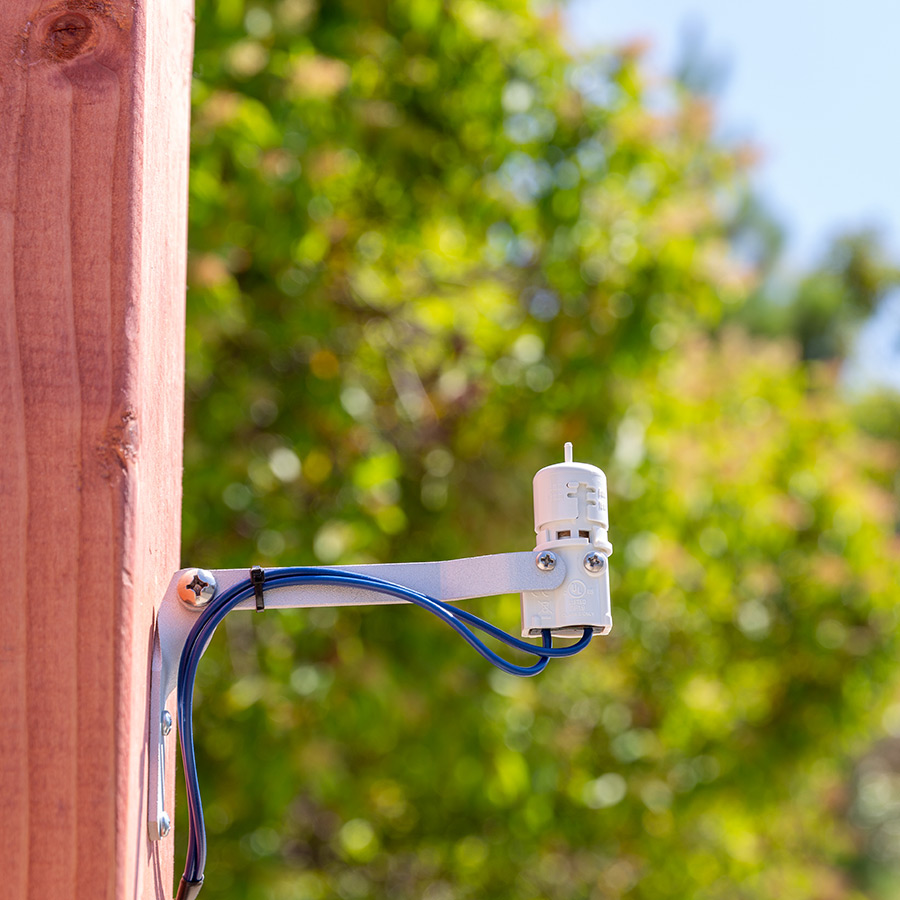
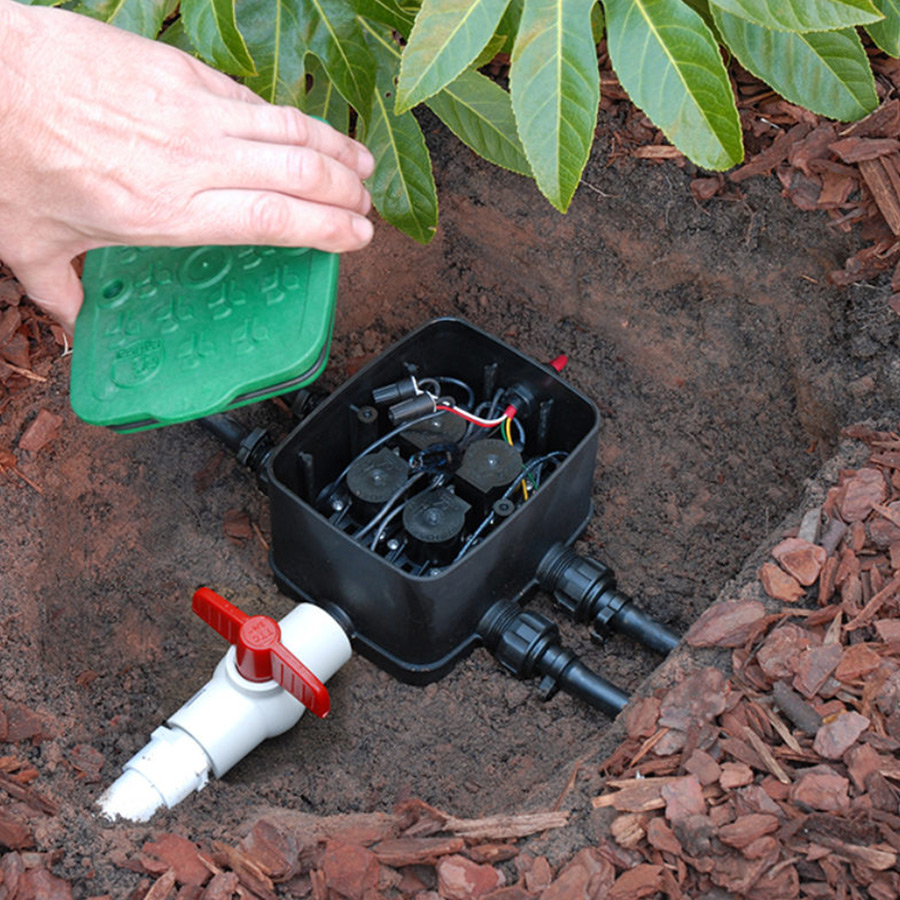
Ezy Valve Solenoid Kit
A Good Alternative
The Antelco Ezy Valve 4 is a simple and cost-effective way of upgrading your system to a solenoid valve and controller but without the hassle of assembling the valves and picking the parts.
A compact valve box with 4 internal solenoid valves that connect to a 24VAC or 9VDC irrigation controller. Installation is uncomplicated and provides a trouble-free way to distribute water to an irrigation system suitable to 20 L/min.
The Kit comes with the correct wire connectors and instructions to make the job easy.
If you are unsure about controllers, solenoid valves and all the components that go with them, then maybe this is the perfect step in the right direction for you.
